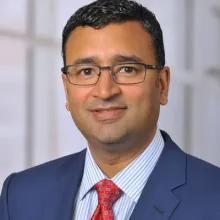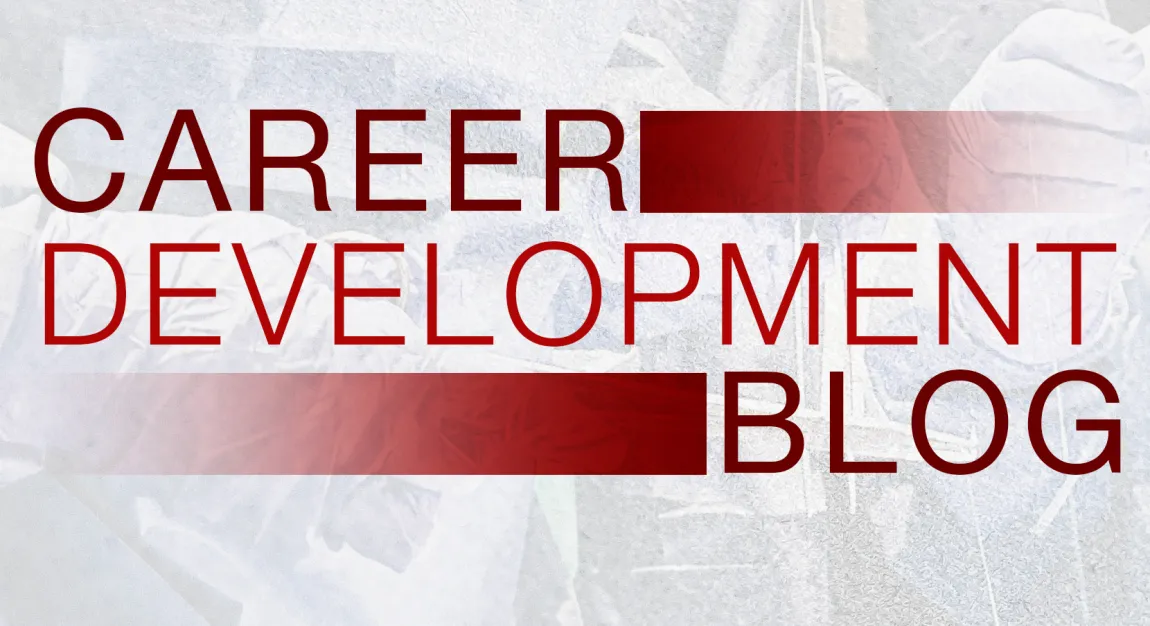- Take a virtual interview as seriously as you would an in-person one.
- The in-person interview is much more of a full evaluation that you may believe. You are being assessed by the entire care team and being judged for your alignment with local culture.
- One of the most important elements of a successful first job is having that support structure identified up front.
The Virtual Interview

Let’s face it, virtual interviews are now a part of our lives. It may be for the better: decreased time away, less cost, more discretion (if you are looking to change jobs), and an easy opportunity to get to know a group.
With that in mind, take your virtual interview very seriously. Be on time (or early). Dress professionally (that means business attire). Place yourself in a quiet place, with a modestly lit background. Avoid sitting in front of a window or other very bright object. Invest in a circular light for your webcam—it makes a huge difference. Make your camera window as small as it can be, and place that window as close to your webcam as possible. We all naturally look at the window rather than the camera, and this will give you points for eye contact.
Pro Tip
If you are wearing a business jacket that is long enough, tuck the back tails under yourself. This will keep your shoulders from rumpling.
Get an agenda ahead of schedule. Do your homework. Look up the interviewers on their website, do a PubMed search, or look in NIH RePORTER to see their grants. Learn as much as you can ahead of time about the institution: recent acquisitions, ownership changes, new leadership, and other noteworthy news items. This information can make for great questions. On that note, have a list of 10-20 good questions—some for an individual and some about the institution. Don’t let the interview end early because “you’ve had all your questions answered already.”
This is a screening step; so if you are not prepared, you may find yourself screened out.
The First Interview
Things are getting serious now. If you are invited to interview in person, chances are that you are one of a handful of finalists. There are probably up to five other candidates in a similar situation, so this is by no means a certainty for you. But you’ve passed the screening step. You likely are qualified for the position, have good letters of reference, and were considered personable virtually. This interview is your opportunity to become a finalist.
The in-person interview is much more of a full evaluation that you may believe. You are being assessed by administrative assistants, coordinators, nurse practitioners, and others. You also are being judged for your alignment with local culture. Be humble. Listen—to the questions and the answers. They will tell you a lot.
Once again, get the agenda ahead of time, and do your homework on the interviewers. It is likely that this will be a different group than the virtual round. You may meet cardiologists, administrators, perfusionists, and others. Ask about:
- Multidisciplinary interactions
- How you would interface with non-surgeons on a regular basis
- The city and school systems
You also may meet with a human resources representative. In this meeting, it’s a good idea to ask about benefits and retirement plans. Have your questions ready once again. The more you prepare, the more prepared you will appear. It is unlikely that salary will come up at this point, and I don’t recommend asking for it.
This is your podium to present your professional self to a wide range of individuals. Are you reliable? Are you capable? Can I call you at any hour day or night? Do I want to?
Pro Tip
Impress the administrative staff, perfusionists, and advanced practice providers because their input counts more than you realize.
During this visit, there likely will be a social event such as a dinner with the surgeons. Once again, this is a very important event that assesses your alignment with local culture. It’s acceptable to have a glass of wine or a beer, but keep it to one. Order a modest appetizer and main course that will not require all your attention (crab legs are a bad idea). Ask about families, hobbies, local attractions, and interests. Talk meaningfully about your own. The more you present your human side, the better.
Part on friendly terms with everyone. Tell them you hope to hear from them soon, and you hope to see them at the next national meeting (and mean it). Tell them you are impressed with their group/institution/position/scope. Be upbeat and have a firm handshake.
On the flight home, reflect on the experience. Write down everything you remember—all the answers to the questions and any highlights or detractors. Really spend a lot of time on this as you are likely to otherwise forget. Read it, and reread it maybe again the following day. You have just amassed a wealth of information whether or not you know it.
The Second Interview
Ok. Things are getting serious. You likely are now in a group of up to three finalists for the position. It is likely that your significant other also has been invited. Bring them or you will not appear serious to your potential employer. If you are single, make sure they clearly know that so they don’t misinterpret anything.
You now have passed all screening and will be more purposely focused on fit. This is a two-way assessment, so it’s just as important for you to be evaluative during the visit. If these are going to be your future coworkers, you also need to like them.
Your interview schedule is likely to expand to a broader team. You may be asked to have lunch with a group of APPs, or residents, or both. You may be asked to speak to more senior leadership such as the department chair, or CEO, or the dean. If you have not done so already, you likely will meet with HR and be given detailed information on benefits.
It is very likely that this visit will be adjacent to a weekend, so that you (and your spouse) can spend a day with a realtor. You will see neighborhoods and houses. You will drive by schools and stadiums. The realtor’s job is to sell you the city on this visit, not necessarily a house. They also are evaluating you and your spouse for fit.
Mentorship
Mentorship is mentioned a lot these days. It’s a key element in any talk about your first job. So it belongs here, too. If anyone has led you to believe that at the end of your training, you are ready to be completely independent, without any help whatsoever, they are lying to you. One of the most important elements of a successful first job is having that support structure identified up front. There are extensive blogs, lectures, and more on mentorship, so I will not belabor the issue here. But do not pursue a position unless mentorship is central.
A Word on Thank You Notes
Most traditionalists will tell you to send a thank you note to each and every one of your interviewers. This is solid advice that is difficult to contradict. I think in the electronic world this may no longer be as meaningful as it used to be. Oftentimes, thank you notes are sent by email and are essentially cut-and-paste with a changed name.
While traditionally correct, this may have limited utility, as thank you notes get electronically forwarded to the main recruiter who sees them all. If you are going to send thank you notes, send hand-written notes, or if you want to remain electronic, make sure each thank you note is completely distinct. That’s a lot of work…but it also can pay off.
